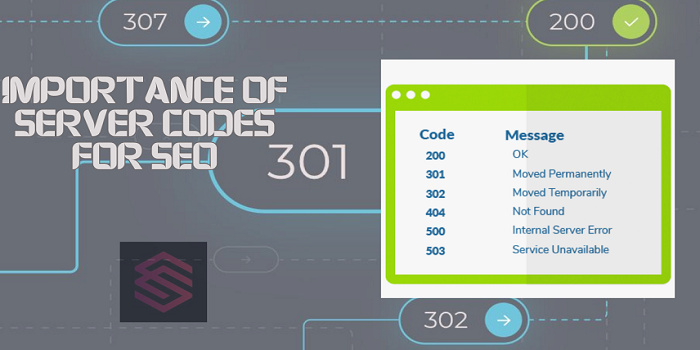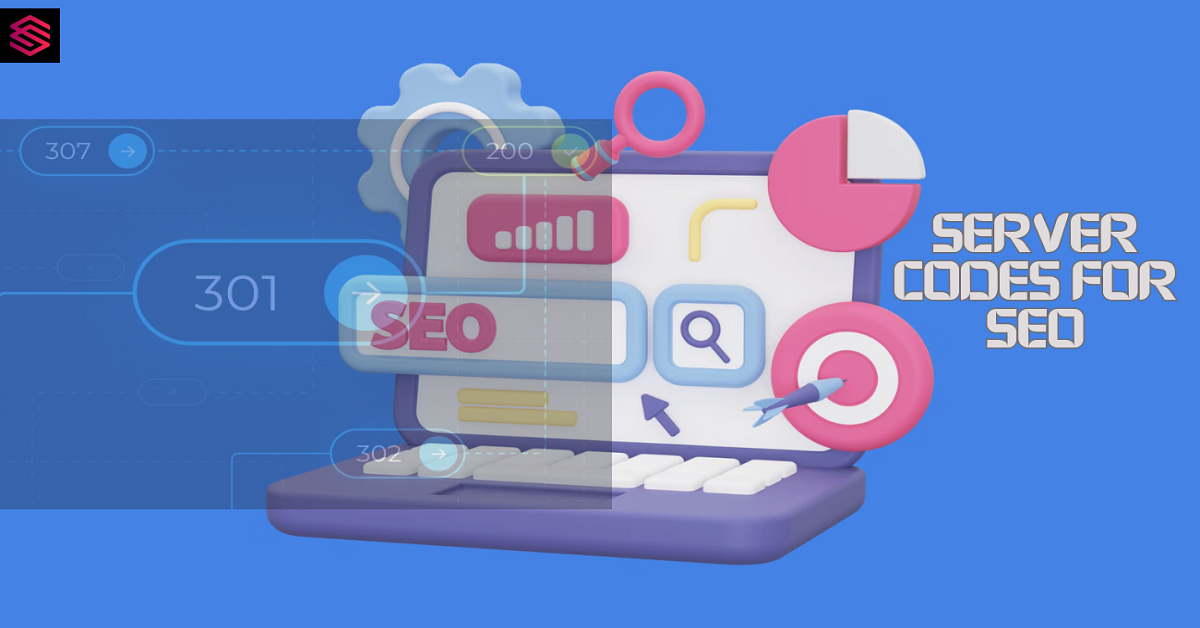In the realm of SEO (Search Engine Optimization), server codes play a pivotal role in determining the accessibility, visibility, and ranking of a website on search engine results pages (SERPs).Website owners, developers, and digital marketers must understand these server codes to optimize their online presence for search engines.
Table of contents
What are Server Codes?
Web servers on the internet give standard response codes, known as HTTP status codes. They send these codes every time a browser requests a web page. These codes offer valuable information about the status of the requested page, including whether it has loaded successfully, redirected, or encountered an error.

There are Four classes of HTTP status codes, each with its own purpose:
Informational responses (1xx)
These codes indicate that the server has received the request and is processing it. They primarily use them for protocol-level communication, and web browsing typically does not encounter them.
Successful responses (2xx)
These codes indicate that the server has successfully received, understood, and processed the request. The most common code in this category is 200, which means the request was successful and the server is returning the requested content.
Redirection messages (3xx)
The client needs to take further action to complete the request indicated by these codes. For example, a server might return a 301 code to indicate that a requested resource has permanently moved to a new location, and the client should update its bookmarks or links accordingly.
Client error responses (4xx)
These codes indicate that there was an error on the client’s side of the request, such as a malformed request syntax or unauthorized access attempt. For example, a 404 code means that the requested resource could not be found on the server.
Importance of Server Codes in SEO
Server codes play a crucial role in SEO as they directly impact how search engines crawl and index web pages. Understanding these codes helps website owners diagnose issues, optimize performance, and improve their website’s overall SEO health.

| Server Code | Importance in SEO |
| 200 | Signals a successful HTTP request, indicating that the page was found and served properly. This is essential for search engines to index content. |
| 301 | Indicates a permanent redirect, which is crucial for preserving SEO value when moving or redirecting pages. |
| 302 | Denotes a temporary redirect, useful for situations like A/B testing or temporarily redirecting traffic without affecting SEO rankings. |
| 404 | Signifies that the requested page was not found. Regularly monitoring and fixing 404 errors is essential to maintain a healthy website structure. |
| 410 | Similar to 404 but specifically denotes that the page is gone permanently. Removing outdated or irrelevant content helps maintain site relevance. |
| 500 | Indicates a server error, which can negatively impact user experience and indexing. Promptly fixing such errors is vital for SEO performance. |
| 503 | Signals that the server is temporarily unable to handle requests. This can affect crawling and indexing, impacting SEO until the issue is resolved. |
Common Server Codes and Their Meanings
200 OK
The 200 OK status code indicates that the request was successful, and the server has returned the requested content. It is the standard response for successful HTTP requests
301 Moved Permanently
This code signifies that the requested resource has permanently moved to a new URL. It plays a crucial role in SEO by ensuring the transfer of link equity to the new URL, preventing loss of ranking and traffic.
404 Not Found
The server issues a 404 Not Found status code when it cannot find the requested resource. This usually happens if a URL is no longer available or has been moved without proper redirection. Addressing 404 errors is essential to maintain a positive user experience and prevent potential SEO issues.
503 Service Unavailable
This code indicates that the server is temporarily unable to handle the request due to overload or maintenance. While it does not directly impact SEO, frequent occurrences of 503 errors can affect website accessibility and user experience, indirectly impacting search engine rankings.
While this error itself doesn’t have a direct impact on search engine optimization (SEO), it can indirectly affect your website’s accessibility and user experience. If visitors frequently encounter 503 errors when trying to access your site, they may become frustrated and choose to leave, which can potentially lead to a decrease in your search engine rankings over time. In summary, while a single instance of a 503 error may not harm your SEO, it’s important to address any recurring occurrences to ensure that your website remains accessible and user-friendly, thus maintaining your search engine rankings
Optimizing Server Codes for SEO
Implementing Proper Redirections
Ensure that proper redirections, such as 301 redirects, are in place for moved or deleted pages to maintain link equity and prevent 404 errors.
Monitoring Server Health
Regularly monitor server health and address any issues promptly to prevent downtime and ensure uninterrupted access to your website.
Custom Error Pages
Create custom error pages for common server codes like 404 errors to provide users with helpful information and navigation options, minimizing the impact on user experience.

Conclusion
Server codes are essential elements of SEO that provide valuable insights into the status and performance of a website. By understanding common server codes and optimizing their implementation, website owners can enhance their SEO efforts, improve user experience, and achieve better visibility on search engine results pages.
Read More Understanding Server Codes for SEO: A Comprehensive Guide
FAQs (Frequently Asked Questions)
You can use various online tools or browser extensions to view the server response codes for any URL on your website.
While server codes themselves may not directly impact rankings, they can affect user experience, which indirectly influences SEO.
Investigate the root cause of the 503 errors, such as server overload or maintenance issues, and address them promptly to minimize disruption.
Yes, there are several other HTTP status codes, each serving a specific purpose in web communication. However, the ones covered in this article are among the most common and relevant to SEO.




